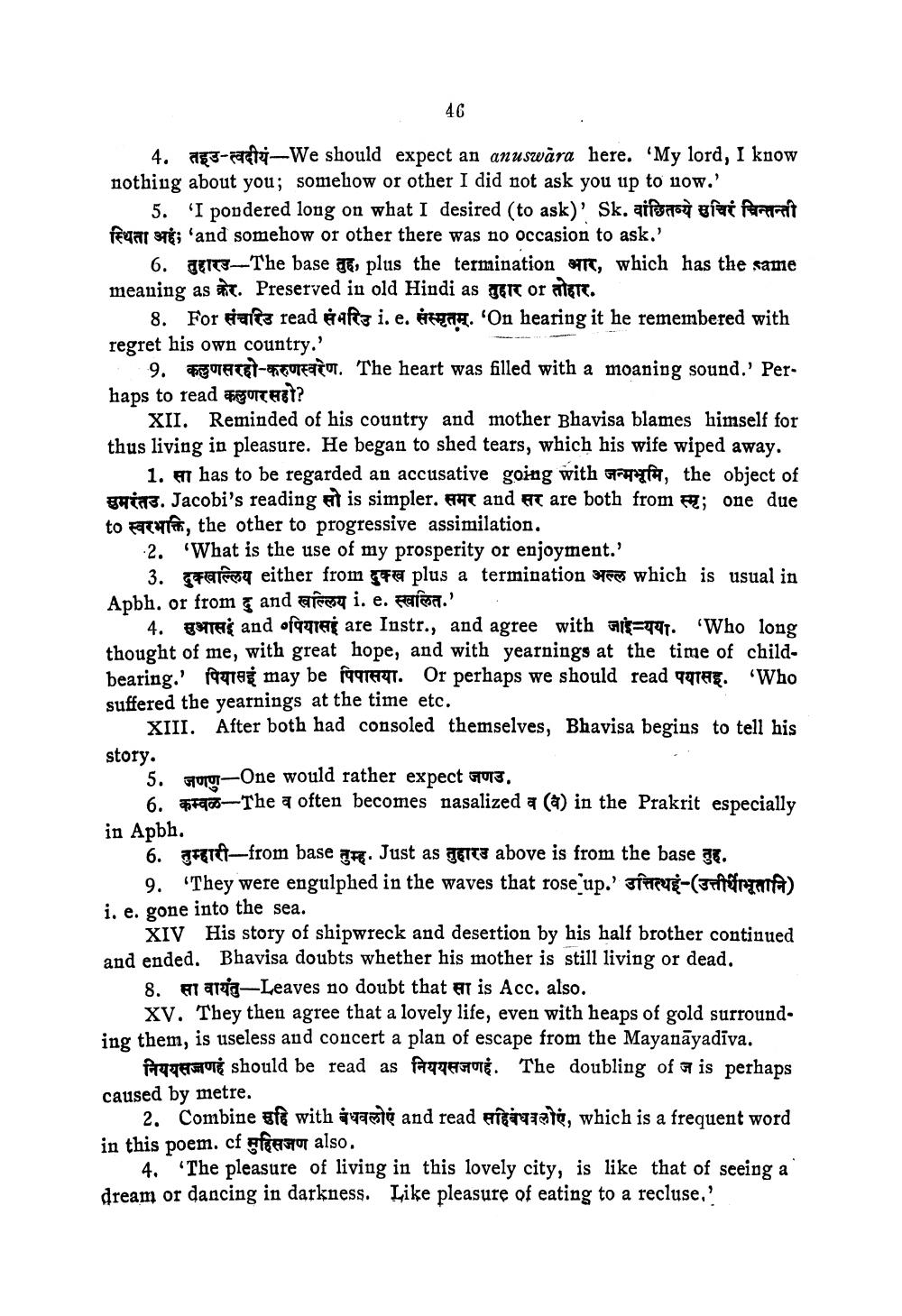________________
46
4. 73-a -We should expect an anuswara here. 'My lord, I know nothing about you; somehow or other I did not ask you up to now.'
5. 'I pondered long on what I desired to ask)' Sk. aifonou uia ferrat fegar ste; and somehow or other there was no occasion to ask.'
6. SEITE_The base , plus the termination BTT, which has the same meaning as केर. Preserved in old Hindi as तुहार or तोहार.
8. For संचरिउ read संभरिउ i.e. संस्मृतम्. 'On hearing it he remembered with regret his own country.'
9. PEUTATE-GUTATOT. The heart was filled with a moaning sound.' Perhaps to read Fort ext?
XII. Reminded of his country and mother Bhavisa blames himself for thus living in pleasure. He began to shed tears, which his wife wiped away.
1. AT has to be regarded an accusative going with it, the object of giz. Jacobi's reading At is simpler. FT and FT are both from ; one due to Fre , the other to progressive assimilation.
2. What is the use of my prosperity or enjoyment.'
3. दुक्खल्लिय either from दुक्ख plus a termination अल्ल which is usual in Apbh. or from P and खल्लिय i.e. स्खलित.'
4. सुभास and oपियासह are Instr., and agree with जाइन्यया. 'Who long thought of me, with great hope, and with yearnings at the time of childbearing.' पियासई may be पिपासया. Or perhaps we should read पयासइ. 'Who suffered the yearnings at the time etc.
XIII. After both had consoled themselves, Bhavisa begins to tell his story.
5. Four-One would rather expect furg.
6. 4797-The a often becomes nasalized a (a) in the Prakrit especially in Apbb.
6. तुम्हारी-from base तुम्ह. Just as तुहारउ above is from the base तुह.
9. "They were engulphed in the waves that rose up.' FIFTEYE-(Spiterima) i. e. gone into the sea.
XIV His story of shipwreck and desertion by his half brother continued and ended. Bhavisa doubts whether his mother is still living or dead.
8. Faria—Leaves no doubt that at is Acc. also.
xy. They then agree that a lovely life, even with heaps of gold surrounding them, is useless and concert a plan of escape from the Mayanāyadiva.
निययसजणहं should be read as निययसजणहं. The doubling of ज is perhaps caused by metre.
2. Combine ale with italy and read trigintate, which is a frequent word in this poem. cf fagut also.
4. The pleasure of living in this lovely city, is like that of seeing a dream or dancing in darkness. Like pleasure of eating to a recluse,'




